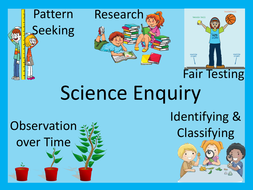Super Scientists
Year 2 have become scientists this week. As a class, we discussed the different types of a scientific enquiry; observation over time; pattern seeking; identifying, classifying and grouping; comparative and fair testing (controlled investigations); and researching using secondary sources.
Over our next few lessons, we will be following the children’s curiosity and the class will be taught to use the following practical scientific
methods, processes and skills:
- asking simple questions and recognising that they can be answered in different ways
- observing closely, using simple equipment
- performing simple tests
- identifying and classifying
- using their observations and ideas to suggest answers to questions
- gathering and recording data to help in answering questions.
Encouraging questions
To get our curiosity juices flowing, the children chose from a selection of pictures that provided a stimulus. This focus prompted the children to begin to ask questions. The class were encouraged to develop more ‘scientific’ questions that could then be turned into an enquiry. We created our very own ‘I wonder’ wall.



Having generated a lot of questions, we then discussed whether we thought the questions could be answered through scientific enquiry.
What could we do?
How could we find out?
I wonder what we will need?
Even though not all of the children’s questions lend themselves to being investigated, there are other ways of finding answers. Any remaining questions, that can’t be answered, we can use the internet or books to research solutions. After all, this is a valid form of scientific enquiry in its own right and demonstrates that all questions are valued.
Living and Learning: STOP bullying
This week, all classes have been learning about different aspects of bullying during national Anti-Bullying Week.
Thank you to those families who supported our Odd Socks Day on Tuesday, celebrating that we are all unique.
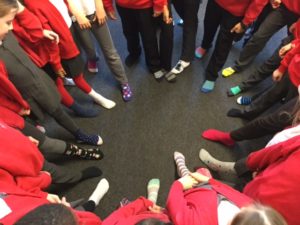
Classes have been considering the following during this week.
- Our school definition of bullying.
‘Bullying is when you hurt someone, physically or emotionally, several times on purpose.’
- Types of bullying – cyber-bullying and prejudice-based bullying related to gender, sexual orientation, race, religion and belief, special educational need and disability
- What to do if children experience or witness bullying. The key message is to tell someone (start telling other people)
STOP can stand for two key messages: the definition (Several Times On Purpose) and the solution (Start Telling Other People).
Our new child friendly anti-bullying policy has been launched this week and this was shared, by the four Year 6 authors, in assembly.
All classes have access to their class Living and Learning box or the whole school worry box where they can tell an adult any concerns about bullying or any other issues.
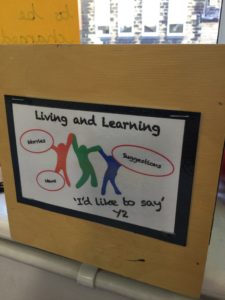
Please discuss this important learning at home (our whole school homework this week).
For further support, here are some resources and advice that can be found at…
- https://www.anti-bullyingalliance.org.uk/tools-information/advice-parents
- https://www.kidscape.org.uk/resources/
- http://www.bullying.co.uk/advice-for-parents/
- https://www.internetmatters.org/hub/news-blogs/get-involved-in-anti-bullying-week-2019-change-starts-with-us/
- https://www.nspcc.org.uk/preventing-abuse/child-abuse-and-neglect/bullying-and-cyberbullying/keeping-children-safe/
- https://www.childline.org.uk/info-advice/bullying-abuse-safety/types-bullying/
- https://youngminds.org.uk/find-help/feelings-and-symptoms/bullying/
- https://esafetyoffice.co.uk/resources/
Living and Learning: STOP bullying
This week is anti-bullying week and Year 2 have been considering this across different areas of our learning.
In our reading lesson, we read through our school definition of bullying and considered words we weren’t sure of. We spotted the important message of STOP – several times on purpose.




We also used our inference skills, and our school definition, when looking at this photo to consider what might be happening and whether this is bullying?
‘We can see the children are hurting the feelings of the boy on the ground.’
‘We know the boy who is sitting down is unhappy and upset because of his face and his head is down.’
‘We don’t know if this is bullying as this is one time and bullying is when it happens several times on purpose.’

Thank you to all the families who supported Odd Socks Day. There were all different sizes, patterns and colours of socks on show and it was great that the children could express themselves and celebrate their individuality while raising awareness of bullying.

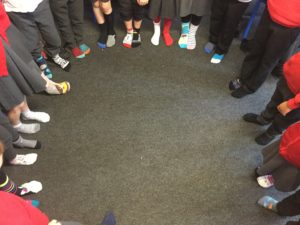
Andy Day, CBeebies star and his band, Andy and the Odd Socks, has again written a song for Odd Socks Day. This time it is called “Change”, based on this year’s theme Change Starts With Us.
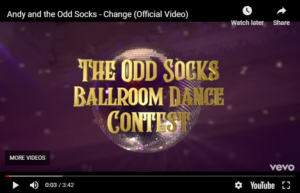
Finally, we considered what to do if any children were bullied, again based on the STOP message – start telling other people.

All the children considered who they would tell if this was happening to them.

As noted in our new child friendly anti-bullying policy, the message is clear.
STOP bullying – bullying is wrong!
We’re a happy and healthy school.
It’s Anti-Bullying Week
This week, it’s anti-bullying week and the theme for this year is ‘Change starts with us’.
Don’t forget – we are also taking part in Odd Socks Day on Tuesday 12th November.

Recently, some of our Year 6 pupils have created a child friendly anti-bullying policy which will be shared with the rest of the school during this week.
Child friendly anti-bullying policy
Written by: Evie, Zidaan, Omar and Eve (Year 6)
What is bullying?
In our school, this is what bullying means:
Bullying is where you hurt someone, physically or emotionally, several times on purpose.
What might bullying look like?
If any of these things happen several (lots of) times, it is bullying.
- Hurting peoples’ feelings, for example, name calling, teasing, threatening, ignoring or spreading rumours
- Hurting peoples’ bodies, for example, hitting, punching or kicking
This could be in person or online (cyber bullying) and could be because of someone’s race, disability, gender or appearance.
What could you do if you are being bullied?
Start
Telling
Other
People
Who could you tell?
- Mrs Weekes/Mrs Freeman/Mrs Russell/Mrs Small (they are child protection staff)
- Mrs Taylor (Health Leader)
- Any other members of staff
- Friends
- Someone in your family
- Childline (0800 1111)
- Write a worry slip and put it in your Living and Learning box or the whole school worry box
- Email stayingsafe@spherefederation.org
Our views on bullying
STOP bullying – bullying is wrong!
We’re a happy and healthy school.
Poppies
Ever since then, poppies have become a symbol of remembering not just those who gave their lives in World War One, but all those who have died on behalf of their country.
Today, we took the opportunity to have a go at sketching poppies. I’m sure you will agree, these drawings are simply stunning.





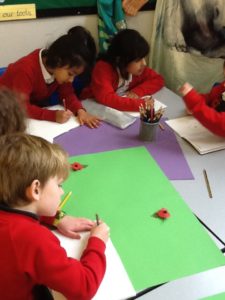




Where in the world am I?
Following our local walk this week, we used the map to see the route we had taken. The children were able to spot landmarks on the map and some even spotted their house!



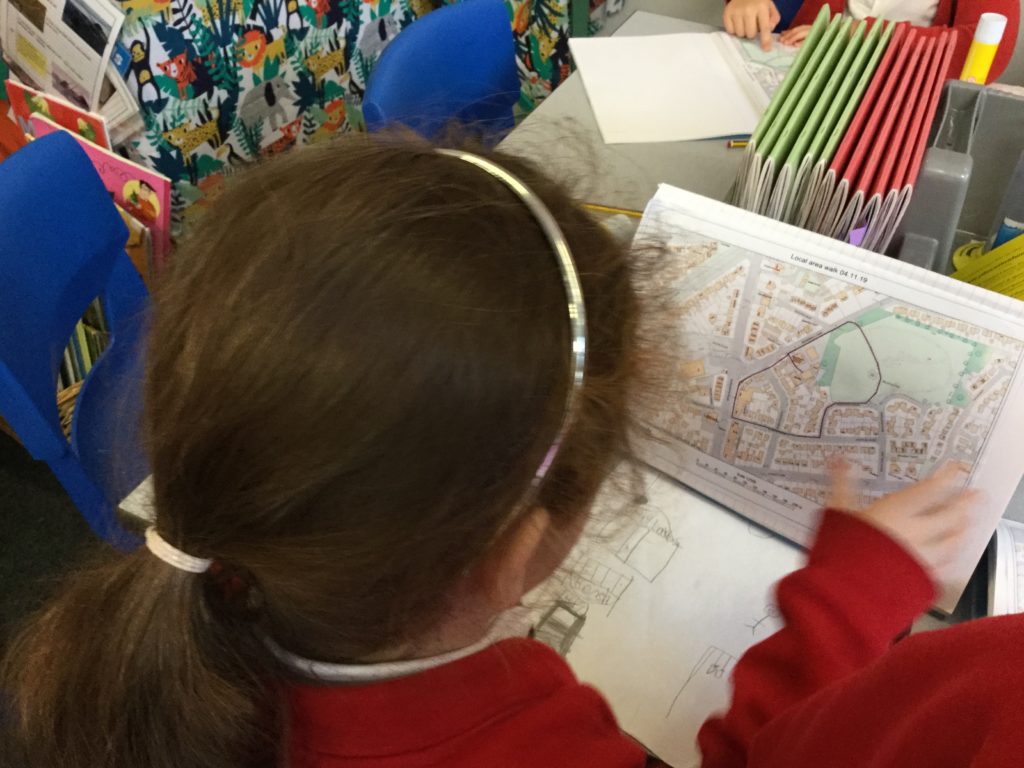
Our new topic, Where in the world am I?, will include lots of map work so if you have an atlas at home it would be great to start looking at where we live in the world.
Where in the world am I?
As a hook to start our new geography based topic, Where in the world am I?, we took a walk around our local area observing and recording features we spotted along the way. Following from this, we will group the features into physical and human and then comment on our likes and dislikes about the local area. What do you like about Moortown?



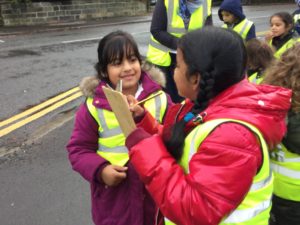
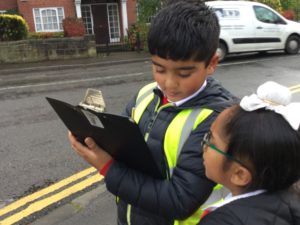










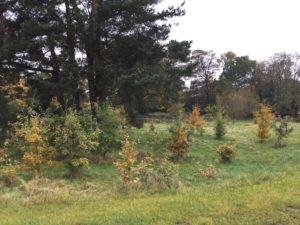


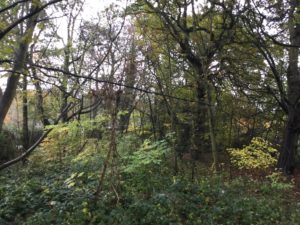
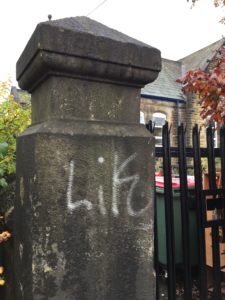


Skylar’s missing note
What an exciting first day back Year 2 have had!
This morning, we welcomed Sam and Jen and we were engrossed by the performance of Skylar’s missing note. This musical story was all about Skylar’s prized piano and how one of the notes (middle C) became lost as the piano was transported to their new house. The note did appear in the mouth of a pigeon but unfortunately, despite Skylar’s best efforts, the note could not be reunited with the piano. Nevertheless, Skylar continued to enjoy her piano and she found other ways to use her piano to create music.


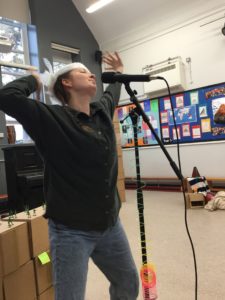









Following the performance, Sam led a workshop where we continued the story but this time based on the pigeon. Along the way, we learnt many musical terms.
- Dynamics – loud or quiet
- Pitch – high or low
- Tempo – fast or slow
- Rhythm – the pattern of the music

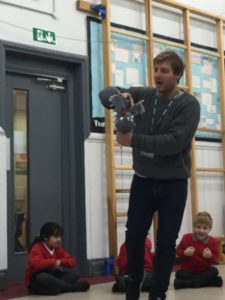
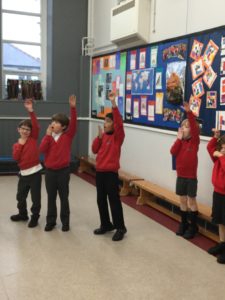




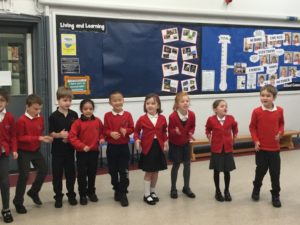


Anti-bullying week – Odd Socks Day
Next week is Anti-bullying Week. This year’s theme is ‘Change starts with us’ and we will be taking part in Odd Socks Day on Tuesday 12 November.

This day is to raise awareness of our differences, individuality and personal choice. There is no need for any payment – your child should simply wear odd socks and join in the fun!

Thank you for your support.
Where is Skylar’s missing note?
‘A young girl journeys in search of her piano’s missing middle ‘C’ lost in transit during a house move.’

We look forward to taking part in this theatre show at school tomorrow for Years 1 and 2.
Featuring a specially constructed piano, it encourages children to play, understand and respond to music, enhancing both language and listening skills through a playful and magical story.
